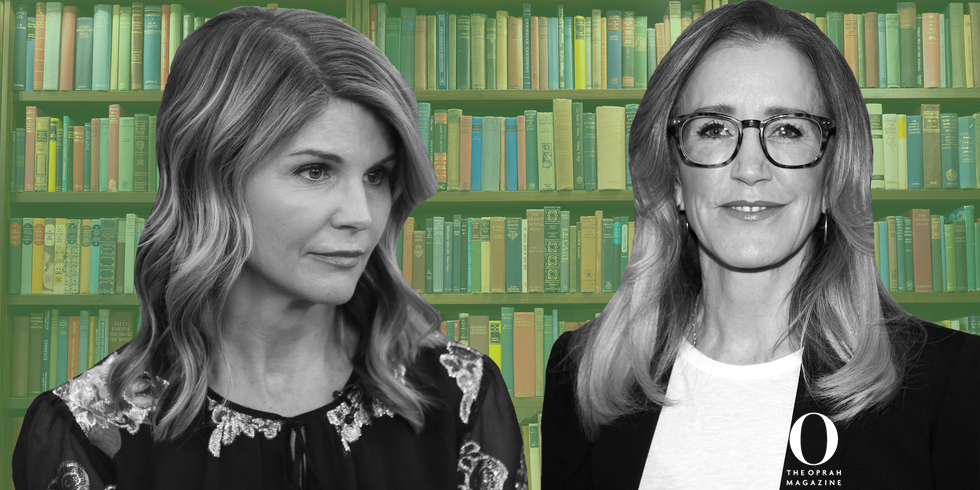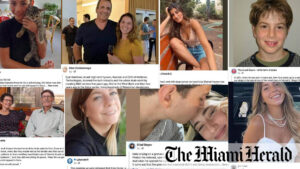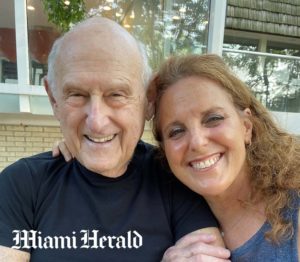I was on my way to get my son from school when the text came from a fellow parent.
“Holy God. Two families from the college cheating scandal are classmates of our boys.”
News had first broken just hours before. Actresses Felicity Huffman and Lori Loughlin topped the list of at least 50 wealthy parents around the country who allegedly hired a third party to cheat (fake test scores), lie (falsify athletic achievements) and bribe college officials (in the multi-millions). Their efforts were all to score acceptances for their children into schools including Yale, Stanford, Northwestern University, and the University of Southern California.
Within days, four more families were implicated in Marin County. Suddenly, the scandal was no longer a grotesque parade happening somewhere “out there.” Nope, these were our towns, our schools.
Shock and schadenfreude raged through the community. And for me? The scandal, set afire so close to home, brought with it enough clarity and discomfort to finally face my small but personal role in the privilege machine.
I HAD TO FACE MY SMALL BUT PERSONAL ROLE IN THE PRIVILEGE MACHINE.
For the last fifteen years, I have worked as a private consultant to teens navigating the college application process, serving as a strategy and writing coach for their applications.
Like many writers trying to contribute to their family’s income, I had fallen into the business by accident, after giving away too much of my time for free.
Before I made the leap, however, I found one question consistently knocking on my conscience. Wait…but is this fair? Is this right?
It was easy to find the answer that I wanted. Kids and parents were everywhere asking for help. And their needs were met by a thriving industry of professionals doing exactly this kind of work—legally. How was this business any different from private coaching or tutoring in any other realm? I asked myself.
So I jumped in—and loved it. It felt good to offer perspective and moral support to my always freaked-out students. As we worked on their college application essays, I helped them explore their memories and find their voices and shape their stories. I tried to impart what I was taught about good writing and editing—skills they would have for life.
I believed my process had integrity. I may have helped get them to the heart of their stories and the framing of their thoughts, but I never wrote their essays for them, never let them pretend to be different or “better” than they were.
And then the scandal broke. The fake scores. The fictitious athletes. The millions in bribes.
And for the last several weeks, I’ve been asking myself that same old question: But, really…is what I’m doing right? And another one crept in: Does the mere existence of my role perpetuate the insanity around college admissions?
Finally, I allowed myself to hear the real answer: Yes. 100%.
I can now admit what seems abundantly obvious. Of course I am part of the privilege machine. How could I not be, when my students are invariably white and upper-middle class, with parents who can afford my services, which are way beyond the reach of the vast majority of college applicants?
With my help, my students gained unfair advantages over their counterparts, benefitting from the perspective and skills of a professional storyteller and writer. And they were therefore putting those who can’t afford an independent consultant at an even greater disadvantage, only further increasing the standard of competition.
The more I heard about this scandal, the louder the answer to my question became: No, what you are doing is not right.
So that’s it for me. I am closing my college consulting business.
I will really miss working with kids—and the extra income. But I don’t regret it. In fact, I’m glad for the very public and glaring light of this scandal. It’s forced me into a reckoning with my conscience that I’m not sure I would have otherwise had. And ultimately, I feel an odd sense of relief now that I’m on the other side.
This article was originally published in Oprah Magazine.





